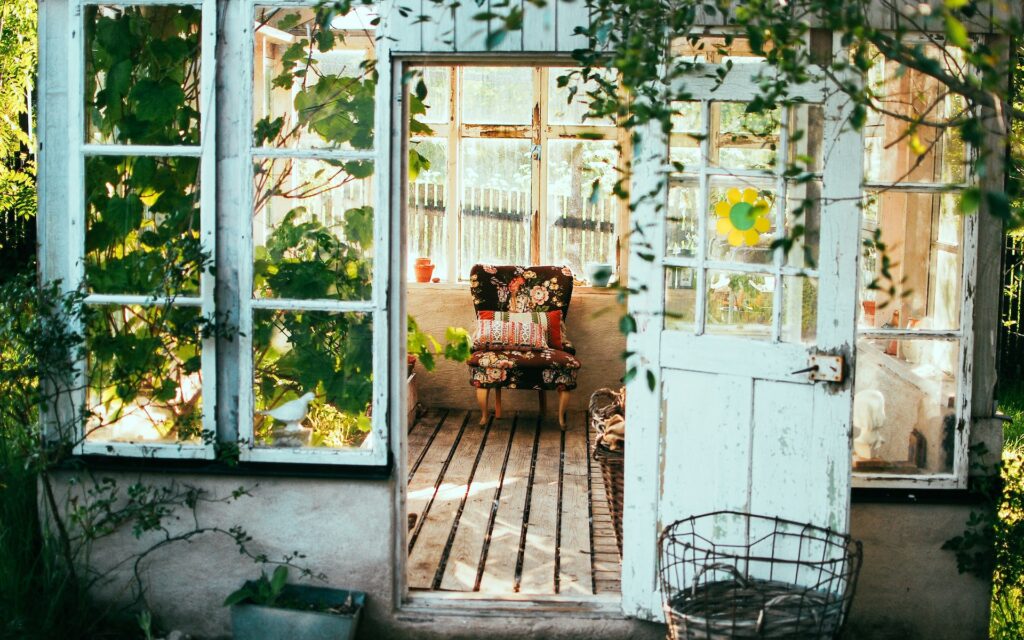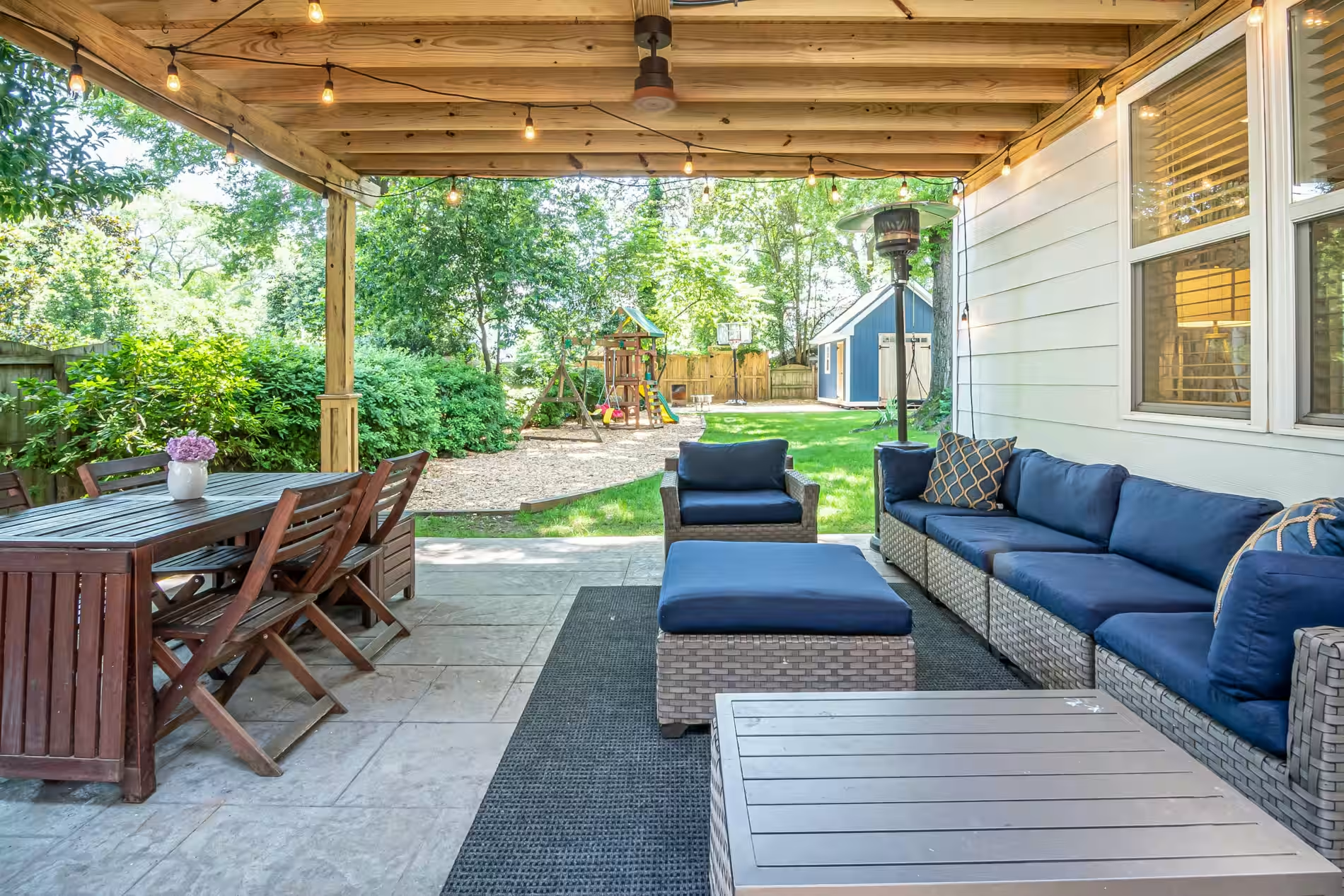Outbuildings are a part of your property, but separate from the main part of the home. These spaces can be used for a wide range of purposes, such as storage, workshops, or even garages. They can increase your property’s value but also bring additional risks. In this article, we discuss insurance for different types of outbuildings, and how to choose coverage that suits your personal needs.
By definition an outbuilding is:
‘A permanent structure used for domestic purposes within the grounds of your home which is not attached to the main building which belong to you or for which you are legally responsible’
The basics of outbuilding insurance
Outbuilding insurance is designed to cover any structures on your property other than the one that is your main home. These range from garages and sheds, to barns and workshops. On a standard home policy, outbuildings need to be declared as separate structures but within a high-value home insurance policy an outbuilding usually forms part of the main building definition, so long as it’s used for domestic purposes only.
When perusing through a high-value home insurance policy wording, pay careful attention to the definition of a ‘home’ and of an ‘outbuilding’. Typically, the definition of the home, as seen below, includes an outbuilding whilst the definition of the building gives specific commentary of what type of outbuilding is or is not covered. Some insurers are more liberal and only include a definition of the home – consult your policy wording.
Aviva Private Clients – Home and Building Definition
Chubb Masterpiece – Home Definition
Covea Executive Plus – Home and Building Definition
Ecclesiastical Private Client – Home and Building Definition
Hiscox 606 – Home and Building Definition
HDI – Home and Building Definition
You should ensure your outbuildings are covered by insurance, to protect you in the event of a fire, theft, vandalism, and certain weather-related damages. The coverage should also extend beyond the building to include contents. For example, a shed or garage may have tools that need covering by insurance.
It is essential to be aware of potential exclusions in your policy. These may include general wear and tear, gradual deterioration, or intentional damage. Also, certain high-risk activities that are carried out in these buildings, such as running a business or storing hazardous materials, might not fall under your standard coverage.
Regularly reviewing and updating your home insurance is vital. This allows you to adapt your policy when you make significant changes to your property. Renovations, adding extensions, or acquiring new items for your outbuildings often mean making adjustments to coverage limits. Staying up to date guarantees that your insurance keeps up with your changing needs and the value of your property.
The other consideration is cover for contents within an outbuilding. Typical home insurance policies will only cover up to a certain amount within an outbuilding (IE £20,000), where a high-value home insurance product will cover you for the full sums insured of contents in an outbuilding.
Do I need insurance for my shed?
Whether you need shed insurance depends on several factors, mainly revolving around the shed’s total contents value, the cost to rebuild the shed and the risks it could face. Sheds are multipurpose spaces, with most homeowners using them to store tools, including bulky and often expensive equipment, as well as a range of valuable items that they have no space for in their homes. Getting the proper protection could therefore be crucial.
Start by calculating the value of the contents stored in your shed. If the collective worth is substantial, then adding it to your high value home insurance policy becomes a wise choice. You do this by increasing the total sums insured by the amount stored in the outbuilding.
When considering whether you need to insure your shed, you should take into account the fact that these structures are exposed to a range of risks that can compromise their structural integrity and the items inside. Although some have been adapted and can resemble small houses, they’re usually not as resistant to the elements as your main house. Review your current policy, or any new policy you’re considering, to confirm the extent of protection provided for sheds – and supplement it if necessary.
Take a look at the home and building definition examples above, it could be that your high-value home insurance policy automatically covers the shed.

Do I need specialist insurance for a garden office?
Garden offices are rising in popularity, as more people are now working from home. To avoid taking up too much space inside the house, the garden shed can be adapted as a home office, becoming an ideal place to work outside of the home. However, this presents questions about insurance, and whether your regular home insurance adequately covers this modern addition to your property. Sometimes you might benefit from separate outbuilding insurance.
Your office may contain expensive electronics, furnishings, and important work-related equipment, requiring additional protection. Although devices such as laptops can be used for several hours without electricity, these outdoor spaces usually undergo building work to allow for electricity. Specialist insurance can offer coverage tailored to the risks associated with these structures, ensuring that your investments are protected.
The inclusion of a garden office can also impact your overall home insurance, as it may increase the total value of your property, influencing coverage limits. It’s advisable to inform your insurance provider about the addition of a garden office to check that your policy accurately reflects its current value. This transparency helps to prevent any gaps in coverage and ensures that both your garden office and its contents are protected.
Do I need to tell my insurer or broker if I run my business from my garden office?
Yes, we suggest to speak to your insurer or broker if you run a business, or work from your garden office. Whilst most insurers do not require notification of clerical use, if there are no visitors or stock being held at the property, it’s always best to check as each insurer will approach it very differently.
Always declare to your broker or insurer if you have visitors or staff at your home, hold stock at your property or if your business address is your home address.
Does a home rebuild survey, to calculate the total cost to rebuild my home, include my outbuildings?
Yes, a home rebuild survey should include your outbuildings. The rebuild cost aims to cover the entire cost of reconstructing your home, including the main house and separate outbuildings such as sheds, garages, tennis courts and swimming pools.
Factors influencing outbuilding insurance needs
Insurance policies differ depending on individual requirements. The location of your property, whether urban or rural, significantly influences your outbuilding insurance needs. Additionally, climate and weather patterns, including proximity to water, play a crucial role in determining the risks that outbuildings encounter. Recognising these different factors highlights the importance of tailored coverage.
Whether safeguarding against specific risks in urban areas or addressing environmental challenges in rural settings, high-value home insurance brings you peace of mind that your outbuildings are comprehensively protected against the different risks they might face..
Specialist insurance for outbuildings
Get in touch with our team of experts to ask us any questions about your project or garden outbuilding, and make sure that you have the correct insurance in place.

